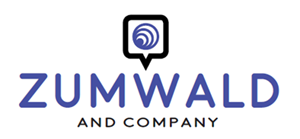Nice and easy does it
Getting ready to interview a hesitant or harried source for your company’s or client’s next big story?
Job 1 is creating the right environment so your source feels comfortable sharing information. Here are 13 ways to create a good rapport with your story sources – right upfront.
1. Tell a source you simply want to have a conversation. People tend to find a “conversation” enjoyable but may find an “interview” intimidating. Choose your words carefully to put your source at ease. If you create trust early on, your source will share more – and you will get a richer story.
2. Never ask for an “endorsement” or a “testimonial quote.” Both requests are immediate turnoffs.
3. Recognize that some sources may hesitate because they’ve been burned by unskilled writers in the past. Assure them you are interested in and want to tell their story. Say things like, “We’re on the same side here.” Remind sources that you’re happy to share the story with them before sending it off to the printer.
4. Avoid conducting cold interviews. Instead, set up a mutually convenient interview time ahead of time. A scheduled time will make your source more committed, more prepared and more focused during the interview.
5. Check any preconceived notions at the door. Don’t make assumptions about sources based on their title or position. Be eager and ready to listen and absorb their unique story.
6. Warm up sources by asking “housekeeping questions” first. Confirm the correct spelling of their name and their current title. Ask about their background. How long have they worked for the company, and what jobs have they had along the way? Housekeeping questions let you ease sources into your real questions.
7. Look for similarities. If you listen and learn you have something in common with your source – perhaps you’re both Ohio State alums? – by all means, say so! When you discover similarities, expect instant rapport.
8. Get your sources on board quickly by focusing their attention. You can say, “Larry, here’s what we’re trying to accomplish with this story” – and feel the immediate engagement.
9. Be conversational yourself. Never read your prepared questions word for word. Talk like real people talk.
10. Encourage your sources along the way. Say things like, “That was a great answer,” or “That makes sense” or “Your example was just perfect.” Such praise tends to give your sources a second wind, especially if you’re discussing a complex topic or a sensitive subject.
11. Smile! Your sources will be able to tell – even if you’re interviewing over the phone.
12. Pay attention to timing. If you asked your source for 30 minutes, respect that. If you run out of time but still have questions, schedule a follow-up interview.
13. Make it fun. As a professional, it’s your job to make an interview pleasant and painless for your source. There’s no greater reward than when a source says, “I’ve really enjoyed our conversation!” If so – then kudos! Mission accomplished.

















